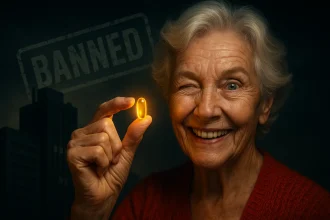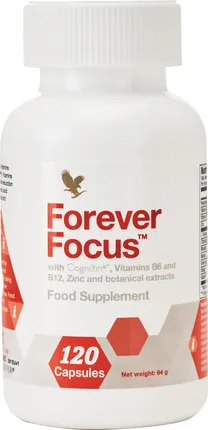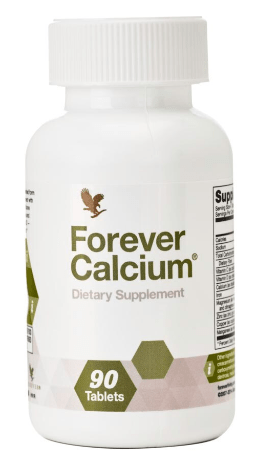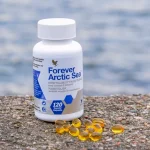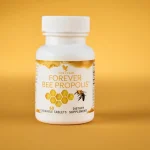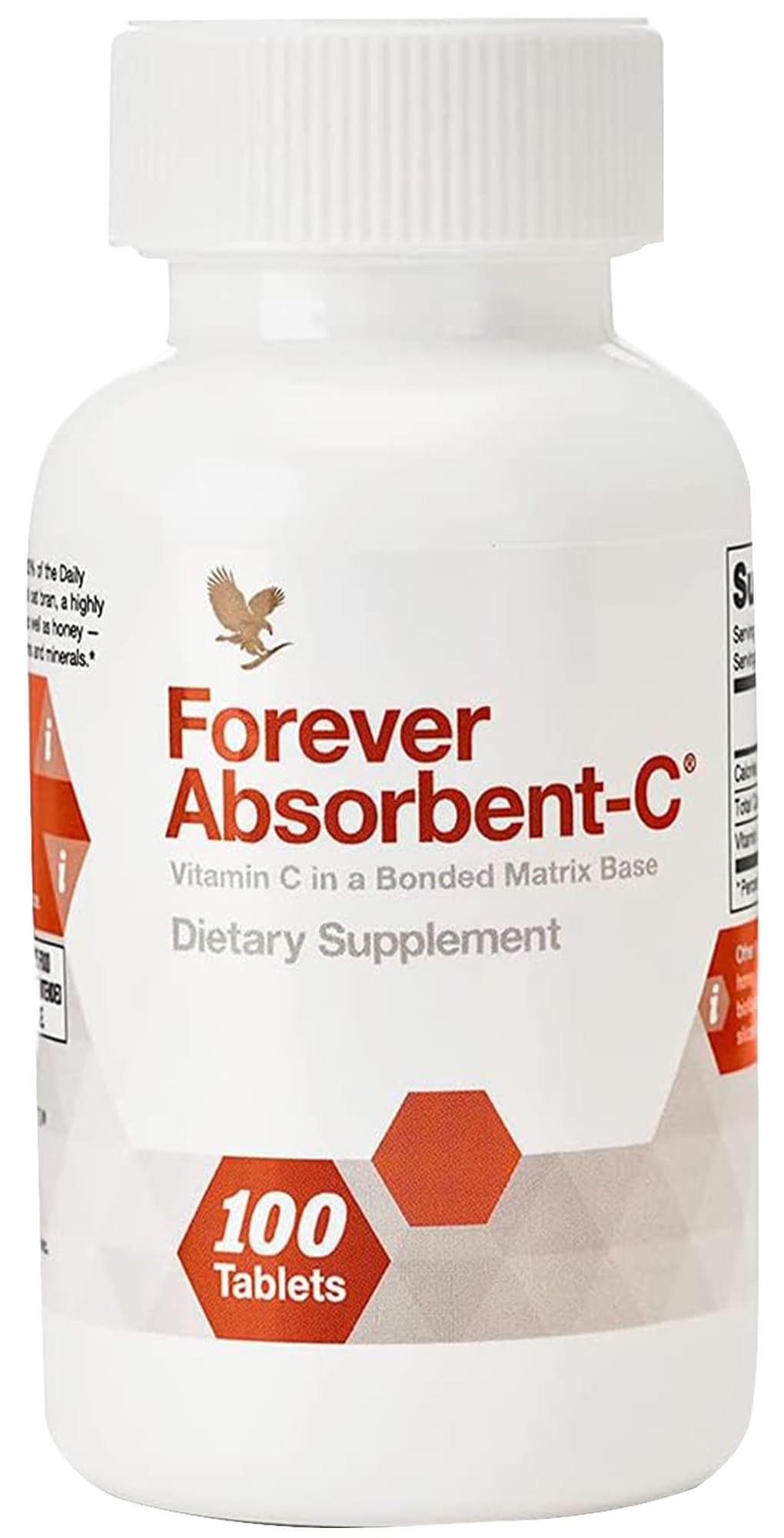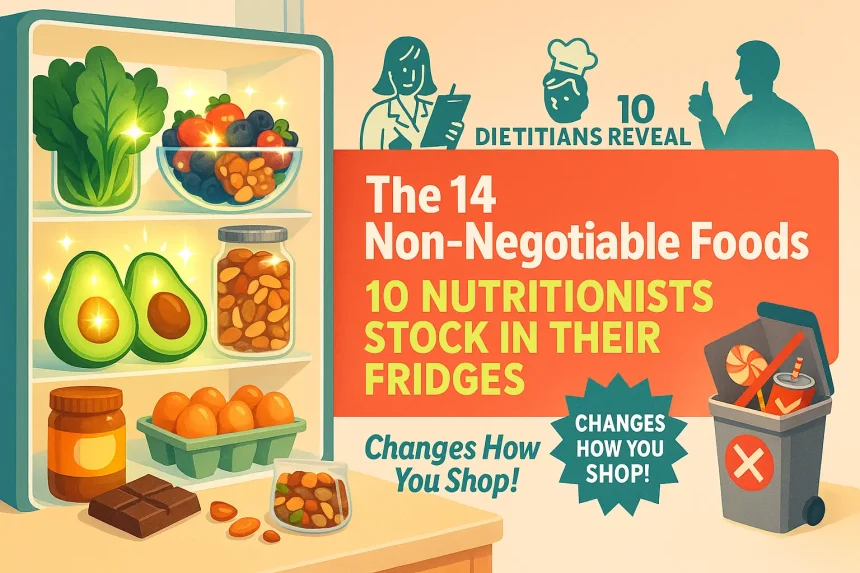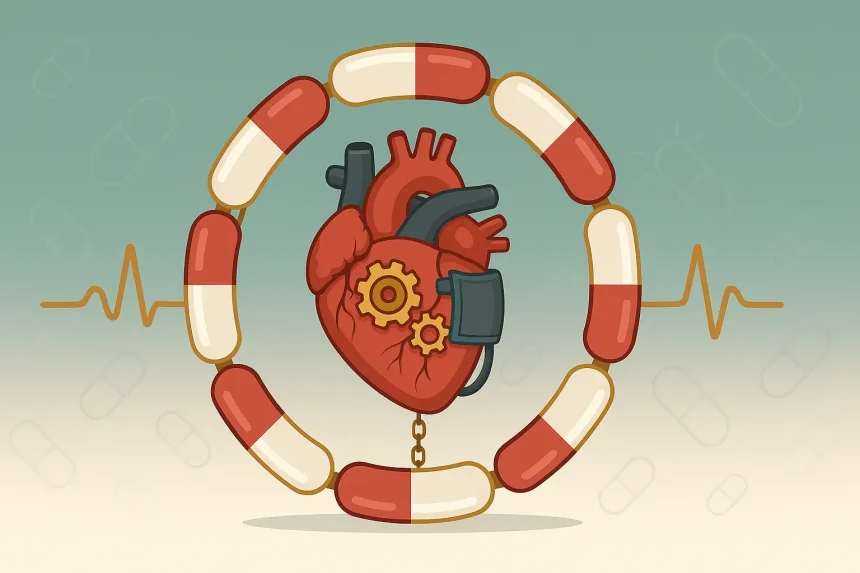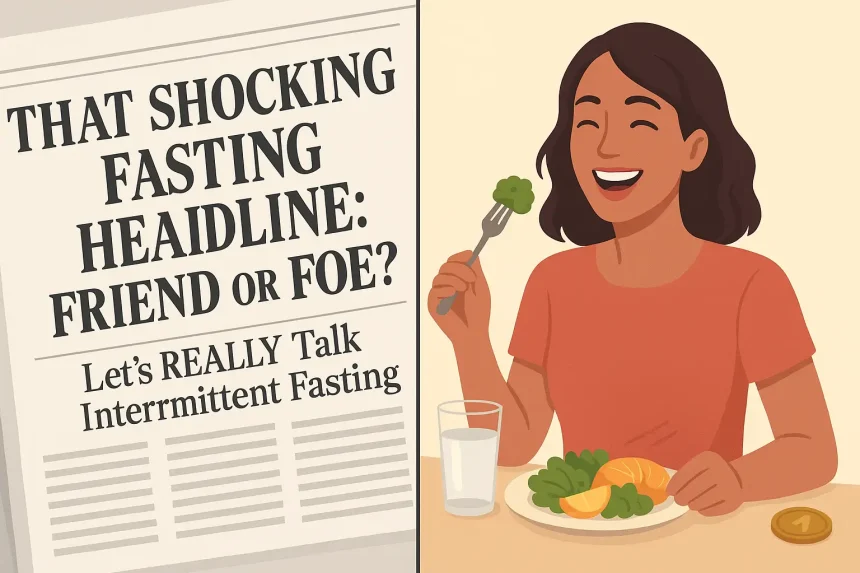You thought you knew what 60 would be like, didn’t you? So many “Over 60 Secrets Exposed” articles barely scratch the surface. They paint a picture of serene smiles and sensible shoes. But the reality? It’s a wild, unpredictable, and often hilarious ride they conveniently forgot to mention in the brochure. We’re about to pull back the curtain on what really happens after you hit that sixth decade.
- The Myth of the Serene (and Silent) Elder
- Unpacking the “Internal Weirdness” They Never Mention
- Body Changes at 60 Years Old: The Unfiltered Truth
- Female Body Changes at 60: Embracing a New Chapter of “Women’s Health Over 60”
- Life at 60 for a Man: Redefining Strength and Purpose in “Men’s Health Over 60”
- Over 60 Secrets Exposed: The Surprisingly Noisy Realities of Loneliness
- The Over 60 Sexuality Paradox: More Than Just a Phantom? (“Can a 60 Year Old Woman Be Sexually Active” & “60 Year Old Man Sexually Active” Explored)
- “What Does a Typical 60-Year-Old Woman Look Like?” Spoiler: There Isn’t One!
- Over 60 Secrets Exposed: Mastering the Psychedelic Time Warp of Aging
- What to Expect at 60 Years of Age: A Holistic View Beyond the Surface
- Over 60 Health: Your Guide to Thriving, Not Just Surviving
- Navigating Over 60 Health Care: Checks, Centers, and Plans
- The Bittersweet Reboot of Self-Reliance
- The “Humprouw” Effect: Your Badge of Honor in the Over 60 Club
- Life Lessons I Wish I’d Known Sooner (But Probably Ignored)
- A Toast to the Invisible Revolutionaries: You Are Not Alone
- The Biggest “Over 60 Secret Exposed”? It’s Just the Beginning.
Everyone has an image.
The one society painted for us.
You’re supposed to have “figured it out.”
Right?
You’re supposed to own beige clothing. Lots of it.
You’re supposed to smile sagely at younger people while sipping something herbal. Chamomile, probably.
Maybe I have a cat. Or three. Definitely well-behaved.
Or be traveling the world with a silver-fox partner named Harold who refers to dessert as “a cheeky treat.” Harold probably wears beige too.
But here’s what no one tells you about life “over 60 health” and all its vibrant chaos: 60 doesn’t arrive like a movie climax.
There are no trumpets. No slow-motion reveal.
It kind of sneaks in.
Like a raccoon in your garage.
Suddenly, it’s there, knocking over the old paint cans of your identity. The ones you thought were sealed tight.
You don’t feel 60. Not instantly.
You just wake up one day and someone else calls you that.
“Ma’am.” “Sir.” “The esteemed elder.”
And you look around for who they’re talking to.
You’re still waiting to become that “wise elder.”
That person you imagined.
But instead, you’re Googling “Is it normal to feel lost at 62?” at 3:14 AM.
With your reading glasses perched on your nose.
Eating peanut butter straight from the jar.
(Yes, with the knife. No shame. We’ve earned it.)
And the most humbling part? The part that truly stings?
Nobody else seems surprised that you’re still confused.
Because nobody’s paying close attention anymore. Or so it seems.
They’ve bought into the myth too. The myth of the figured-it-all-out sixty-something.
The Myth of the Serene (and Silent) Elder
The world loves a good stereotype.
And for those of us navigating “over 60 health,” the stereotype is often one of quiet dignity.
Of serene wisdom. Of… well, beige.
It’s a comfortable image for others. Less so for us living it.
You see, you’re expected to have traded your youthful fire for a gentle, knowing warmth.
Like a well-banked fireplace.
Pleasant. Unthreatening.
But what if your fire still roars?
What if it sometimes threatens to burn the whole darn house down?
Society hands you this script for “what to expect at 60 years of age.”
It’s filled with gardening, grandparenting (if you’re lucky), and gentle hobbies.
There’s rarely a chapter on existential angst at 3 AM.
Or the sudden urge to learn skateboarding.
Or the fact that you still don’t know what you want to be when you grow up.
Even though, technically, you’re already grown. Very grown.
This myth of the serene elder creates an invisible pressure.
A pressure to conform to an image that might be miles away from your internal reality.
You find yourself performing “serenity.”
Smiling politely when you want to scream.
Nodding wisely when you’re actually thinking about whether aliens exist.
(Spoiler: The raccoons know. They’re just not talking.)
The 3 AM Google searches become a secret ritual.
“Am I the only one who feels like an imposter in their own life?”
“Why do I suddenly want to dye my hair purple?”
“Can a 60 year old woman be sexually active and still be considered ‘respectable’?” (The answer is a resounding YES, by the way.)
The internet, in its vast, anonymous wisdom, often provides more solace than well-meaning friends who just want you to be “okay.”
This feeling of being lost isn’t a sign of failure.
It’s a sign you’re still searching. Still curious. Still growing.
The paint cans of your identity aren’t just knocked over; you’re realizing you can mix the colors into something entirely new.
Something vibrant. Something unexpected.
Something that is definitely not beige.
The world might expect silence and sage nods.
But maybe what they really need to see is the glorious, messy, still-evolving truth of a life fully lived.
A life that proves that “figuring it out” is a lifelong process, not a destination you arrive at with your senior discount card.
And that’s one of the biggest “Over 60 Secrets Exposed.”
Unpacking the “Internal Weirdness” They Never Mention
Let’s talk about the weird part.
The really weird part.
Not “your knee sounds like a microwave popcorn bag” weird. Though, yes, that too. We’ll get to “body changes at 60 years old” soon enough.
I’m talking about the internal weirdness. The stuff happening in your magnificent, maturing brain.
Here’s a shortlist of things I, and maybe you, began doing after 60:
Naming my socks. (Bert and Ernie are my current favorites. Don’t judge.)
Telling my shower loofah secrets. (It’s surprisingly understanding.)
Arguing out loud with my dead Uncle Jimmy. (He’s still wrong about that fishing trip in ‘78.)
Crying while watching raccoons eat grapes on YouTube. (It’s the tiny hands! So dexterous!)
Mentally drafting my eulogy just to see who would show up. (And what snacks they’d serve.)
No one prepares you for this mental side-show.
This blooming of eccentricities.
There’s a pervasive myth that we become more “ourselves” with age. More distilled. More… predictable.
But often, we become versions of ourselves that never made it to the spotlight before.
The back-up dancers of our identity suddenly find themselves center stage, blinking in the unexpected glare.
You find yourself wondering: Did I always think like this?
Or is my brain just making up for lost time by throwing all the oddballs forward?
Is this a sign of cognitive decline, or is it something else entirely?
Here’s a thought: it’s not necessarily decline. It could be bloom.
Research into neuroplasticity suggests our brains can continue to adapt and change throughout our lives. A study published in Nature Medicine highlighted how cognitive training can induce plastic changes in the aging brain. Perhaps these “weird” thoughts are just new neural pathways forging adventurous routes. Or old ones, long dormant, finally waking up.
Maybe your brain isn’t losing it.
Maybe it’s just… expanding. Getting creative in its old age.
Like a jazz musician finally allowed to improvise after decades of playing the standards.
You might start questioning everything.
The nature of reality. The purpose of Tupperware. Why flamingos are pink.
These aren’t signs of senility. They’re signs of an engaged mind.
A mind that’s perhaps less filtered, less concerned with societal norms than it once was.
And isn’t that liberating?
Spoiler: You’re not losing it. You’re just becoming fully yourself.
Unfiltered. Unapologetic.
Unfortunately, sometimes that self is deeply into conspiracy theories about mushrooms.
Or believes in reincarnation as a particularly comfortable beach umbrella.
(Which, honestly, doesn’t sound half bad.)
If you find your focus isn’t what it used to be amidst this beautiful brain-bloom, don’t despair.
It’s a common experience.
Many find that supporting their cognitive function with targeted nutrients can be helpful.
For instance, Forever Living Focus™ is packed with ingredients like Cognizin® (a clinically studied form of citicoline), Bacopa extract, and vitamins B6 and B12, all known to support mental clarity, concentration, and cognitive health.
It’s not about stopping the “weirdness” – it’s about navigating it with a sharper compass.
Embrace the bloom. Fuel the brain.
Body Changes at 60 Years Old: The Unfiltered Truth
Alright, let’s get physical.
Because let’s be honest, the “body changes at 60 years old” are pretty hard to ignore.
It’s like your body suddenly got the memo that it’s officially “vintage,” and it’s decided to celebrate with a whole range of new creaks, quirks, and character lines.
This isn’t just about “over 60 health issues”; it’s about a new relationship with the vessel that carries you.
Remember when you could leap out of bed?
Now it’s more of a strategic, multi-stage rollout. Accompanied by sound effects.
A symphony of snaps, crackles, and pops that could rival a bowl of Rice Krispies.
And that’s okay. It’s your body’s morning anthem.
Your metabolism, that fiery furnace of youth, might now resemble a slow-burning ember.
The National Institute on Aging (NIA) explains that metabolism naturally slows with age due to changes in body composition, like muscle loss. You can find more info on their website.
This means that the slice of cake you devoured without a second thought at 30 now seems to take up permanent residence on your hips.
It’s not your imagination. It’s science. Frustrating science, but science nonetheless.
Joints? Oh, they’ll have conversations with you.
Sometimes loudly. Especially when rain is coming.
You become a human barometer. It’s a weird superpower, but hey, it’s something.
This is often due to wear and tear on cartilage over the years.
Supporting joint health becomes less of a luxury and more of a daily necessity.
Think about ways to keep them happy. Gentle movement is key.
And if you’re looking for extra support, products like Forever Freedom® which combines aloe vera with glucosamine, chondroitin, and MSM, are designed to support joint function and mobility.

Forever Freedom®
It combines aloe vera with glucosamine, chondroitin, and MSM, are designed to support joint function and mobility
Or Forever Move™, with its innovative blend of NEM® (natural eggshell membrane) and BioCurc® (water-soluble curcumin), offers targeted support for joint comfort and flexibility. It could be a game-changer for those morning symphonies.
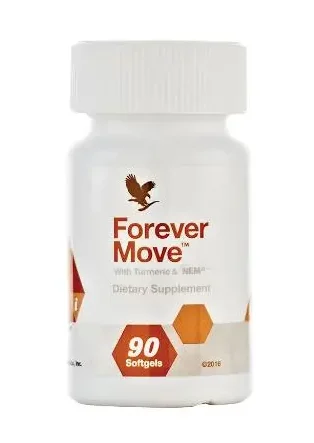
Forever Move™
With its innovative blend of NEM® (natural eggshell membrane) and BioCurc® (water-soluble curcumin), offers targeted support for joint comfort and flexibility.
Skin, the canvas of your life, starts telling more stories.
Some call them wrinkles. I call them experience maps.
Each line charts a journey, a laugh, a worry, a moment lived.
Collagen and elastin, the proteins that keep skin firm and supple, decrease with age. The American Academy of Dermatology Association offers great insights into how skin ages [See AAD’s resources on aging skin].
Hydration, both internal and external, becomes your best friend.
And a good moisturizer isn’t vanity; it’s self-care. Forever Living’s Sonya® daily skincare system or the Infinite by Forever™ advanced skincare system are designed to hydrate, rejuvenate, and support mature skin, helping those experience maps glow.
Your energy levels might feel like a rollercoaster.
Some days you’re ready to conquer the world. Other days, the couch calls your name with an irresistible siren song.
This is normal. Listen to your body. Rest when you need to.
But also, don’t be afraid to gently push yourself on the good days.
A consistent intake of nutrients is vital here.
FLP’s Forever Daily™ provides a blend of essential vitamins and minerals, and their classic Aloe Vera Gel® drink can support digestion and nutrient absorption, laying a good foundation for overall vitality.
These changes aren’t a declaration of decline.
They are simply changes. Adjustments. A new landscape to navigate.
Understanding them, even a little bit scientifically, can take away some of the fear and replace it with proactive acceptance.
And maybe a little bit of humor.
Because if you can’t laugh when you drop your keys and have to strategize for five minutes on how to pick them up, when can you?
Female Body Changes at 60: Embracing a New Chapter of “Women’s Health Over 60”
Ladies, let’s talk specifics. Because “female body changes at 60” deserve their own spotlight.
This isn’t just about “women over 60 health issues”; it’s about a profound shift, a new season in the saga of being a woman.
And it’s one of the “Over 60 Secrets Exposed” that needs more open conversation.
Menopause might be in the rearview mirror for many by 60, but its echoes can linger.
Hormonal fluctuations, even post-menopause, can still influence everything from your mood to your sleep to your skin.
It’s like the grand finale of an opera that occasionally decides to throw in an extra, unexpected aria.
Understanding that these lingering effects are normal is key. You’re not going crazy; your body is just finding its new equilibrium.
Bone density becomes a front-and-center concern for “women’s health over 60.”
Estrogen plays a crucial role in maintaining bone strength, and as its levels decline, bones can become more fragile.
This is why osteoporosis is more common in postmenopausal women. The National Osteoporosis Foundation is an excellent resource for information on bone health.
Weight-bearing exercise (like walking or dancing) and getting enough calcium and Vitamin D are your superhero allies here.
Consider adding a targeted supplement. Forever Calcium® provides not just calcium but also Vitamin D and magnesium, which are vital for calcium absorption and bone health. It’s a simple step that can make a big difference.
Your metabolism might have its own ideas about “over 60 healthy eating.”
The same dietary habits that worked in your 40s and 50s might need a rethink.
It’s not about deprivation; it’s about smart choices.
Focus on nutrient-dense foods: lean proteins, plenty of fruits and vegetables, and whole grains.
And hydration! Water is your elixir.
If managing weight feels like an uphill battle, FLP’s Forever Lite Ultra® shake mix can be a great tool. It’s a delicious, protein-rich meal replacement that can help you control calorie intake while ensuring you get essential vitamins and minerals.
Then there’s the skin. Oh, the skin.
It might feel drier, thinner, and more delicate.
Those hormonal shifts can reduce oil production and collagen.
A dedicated skincare regimen designed for mature skin isn’t an indulgence; it’s essential TLC.
Look for products rich in antioxidants and hydrators. FLP’s Infinite by Forever™ advanced skincare system is specifically formulated to target the signs of aging from the inside out and the outside in.
And let’s not forget vaginal health.
It’s a topic often whispered about, but it’s crucial for “women’s health over 60.”
Vaginal dryness can be a common issue due to lower estrogen levels, potentially impacting comfort and even “can a 60 year old woman be sexually active” with ease.
Don’t be shy about discussing this with your healthcare provider. There are solutions!
Using a gentle, pH-balanced personal lubricant can make a world of difference. FLP’s Forever Aloe Vera Gelly (while not marketed as a lubricant) is incredibly soothing and moisturizing for external use, but for internal lubrication, seek products specifically designed for that purpose.
The emotional impact of these changes can be significant.
It’s okay to grieve the body you once had while also learning to love and appreciate the body you have now.
It’s a vessel that has carried you through so much. It deserves respect, care, and a whole lot of kindness.
Share your stories. Talk to other women. You’ll find you’re not alone in this journey.
This chapter isn’t about fading away; it’s about stepping into a different kind of power.
A wisdom that’s earned, a beauty that’s authentic, and a strength that’s resilient.
Life at 60 for a Man: Redefining Strength and Purpose in “Men’s Health Over 60”
Alright, gentlemen, your turn. “Life at 60 for a man” comes with its own unique set of adjustments and opportunities.
It’s not just about “men’s health over 60” in the clinical sense; it’s about a new phase of masculinity, purpose, and well-being.
These are the “Over 60 Secrets Exposed” that often get buried under stoicism and silence. Let’s dig them up.
One of the biggies can be the shift often dubbed “andropause,” or male menopause.
While not as sharply defined as female menopause, many men experience changes related to declining testosterone levels.
This can manifest as lower energy, changes in mood, reduced muscle mass, and even a dip in libido.
Recognizing these signs isn’t admitting defeat; it’s the first step to proactively managing your health.
The Mayo Clinic has some good information on male menopause.
Muscle mass naturally tends to decrease with age, a condition known as sarcopenia.
You might notice it’s harder to maintain strength or that you tire more easily.
Regular physical activity, especially resistance training, becomes incredibly important. You don’t need to become a bodybuilder, but consistent effort makes a huge difference.
And protein intake is key! Ensure your “over 60 healthy diet” includes enough high-quality protein to support muscle maintenance and repair.
FLP’s Forever Lite Ultra® isn’t just for weight management; its high protein content (available in soy-based vanilla and chocolate) makes it an excellent supplement to boost your daily protein intake, supporting those muscle-building efforts. For men looking for specific support, Vitolize® Men is formulated with botanicals like saw palmetto, pygeum, and pumpkin seed, which have been used for centuries to support prostate health and overall male vitality.
Speaking of which, prostate health is a significant aspect of “men’s health over 60.”
It’s common for the prostate gland to enlarge with age (a condition called Benign Prostatic Hyperplasia or BPH), which can lead to urinary issues.
Regular check-ups with your doctor are crucial. Don’t let embarrassment keep you from seeking advice or getting screened. Early detection of any issues is always best.
A diet rich in fruits, vegetables, and healthy fats can also support prostate health.
And what about “60 year old man sexually active”? Absolutely.
Changes in sexual function can occur, perhaps related to testosterone levels, other health conditions, or medications.
But this doesn’t mean your sex life is over. Far from it.
It might mean redefining intimacy, focusing more on connection, or exploring new ways to experience pleasure.
Open communication with your partner is vital. And again, don’t hesitate to talk to your doctor if you have concerns.
Sometimes, simple lifestyle changes or addressing underlying health issues can have a positive impact.
General vitality plays a role too. Ensuring your body has the nutrients it needs for energy and well-being, perhaps with a comprehensive multivitamin like Forever Daily™ or the energy-boosting properties of Forever Bee Pollen®, can contribute to your overall zest for life, including intimacy.
Beyond the physical, “life at 60 for a man” often involves a mental and emotional recalibration.
If your identity was heavily tied to your career, retirement (or the prospect of it) can bring a sense of uncertainty.
Who am I without my job title? What’s my purpose now?
This is an invitation to explore new passions, hobbies, or even volunteer work.
To connect with aspects of yourself that might have been dormant for decades.
Maybe it’s mentoring, learning a musical instrument, or finally writing that novel.
The definition of “strength” can evolve too. It’s not just about physical prowess anymore.
It’s about resilience, emotional intelligence, the courage to be vulnerable, and the wisdom to share your life experience.
This chapter is a chance to build a legacy that’s about more than professional achievements.
It’s about the man you’ve become, and the man you’re still becoming.
Over 60 Secrets Exposed: The Surprisingly Noisy Realities of Loneliness
I’m not lonely in the “no one’s around” way. Not always.
My house isn’t empty. My phone rings. I have people.
I’m lonely in the “everyone assumes I’m fine because I can still drive and form sentences” way.
This is one of the more insidious “Over 60 Secrets Exposed.” It’s a loneliness that whispers, even in a crowded room.
It’s a new kind of invisibility.
People look past you at 60.
Not with cruelty, usually. More with assumption.
You’ve become a background character in their bustling lives. A walking cardigan. Part of the scenery.
You might be screaming internally, a silent primal yowl of confusion, joy, or sheer bewilderment at the price of organic kale.
But externally, people mostly comment on how “sharp” you are for your age.
Or how “well” you’re doing.
And you nod, because it’s easier than explaining the technicolor chaos in your soul.
But here’s the real kicker: The loneliest part isn’t that people ignore you.
It’s that they only see the part of you they expect to see.
The neatly edited, age-appropriate version.
The one that fits their pre-conceived notions of “what to expect at 60 years of age.”
If you cry in a grocery store at 10 a.m. because they’re playing a song that reminds you of your first love from 1978…
They don’t see a heart suddenly ambushed by a bittersweet memory.
They assume you’re grieving a recent loss. Or worse, senile. “Poor dear.”
What if you’re crying because you finally remembered the exact taste of your favorite candy from 1972, the one they discontinued? That specific brand of fizzy sherbet.
What if that candy was the last link to your brother who died in ’83, the one you shared it with every Saturday?
What if you’re not broken — just untranslated?
Your experiences, your memories, your emotional landscape – it’s rich, it’s complex, but it’s often not in a language younger generations readily understand without effort.
This isn’t just a feeling; it has real health implications.
Numerous studies, like those highlighted by the Centers for Disease Control and Prevention (CDC), link social isolation and loneliness to increased risks for various physical and mental conditions in older adults, including heart disease, dementia, and depression [Explore CDC resources on loneliness in older adults].
Combatting this “noisy loneliness” isn’t about just filling your schedule.
It’s about seeking genuine connection.
Finding your tribe. People who “get” your brand of weird.
People who are willing to listen to the stories behind the “I’m fine.”
This might mean being brave. Reaching out. Joining a new club, even if it feels daunting.
Starting conversations. Sharing your untranslated thoughts.
You might be surprised who’s listening. Who feels it too.
Sometimes, the simple act of being truly seen, truly heard, can dispel the deepest shadows of this invisible ache.
And remember, your experiences have value. Your stories matter.
Don’t let the world’s assumptions silence the vibrant, noisy truth of who you are.
If low energy or mood sometimes holds you back from seeking these connections, think about foundational support.
The B vitamins in products like Forever B12 Plus® are crucial for energy metabolism and nervous system function, which can impact mood.
And the simple daily ritual of drinking Forever Aloe Vera Gel® can support your overall digestive health, which surprisingly, is linked to mood and energy too (the gut-brain axis is a real thing!). Little supports can make it easier to step out and engage.
The Over 60 Sexuality Paradox: More Than Just a Phantom? (“Can a 60 Year Old Woman Be Sexually Active” & “60 Year Old Man Sexually Active” Explored)
Oh yes. We’re going there.
Because if there’s one area where “Over 60 Secrets Exposed” are truly kept under wraps, it’s sex.
Let’s talk about sex after 60. Or rather, the often-misunderstood, surprisingly vibrant, and sometimes baffling phantom of sex.
And let’s be crystal clear: “can a 60 year old woman be sexually active?” and “can a 60 year old man sexually active?” The answer to both is a definitive, resounding YES. If they want to be.
Some days, it’s like you’re 23 again.
Giddy, playful, a mischievous twinkle in your eye. Aroused by the smell of lavender, rebellion, or a really good cup of coffee.
Your body hums with a familiar, forgotten energy.
Other days, your libido evaporates so thoroughly it might as well be applying for unemployment benefits.
Gone. Vanished. Not even a note.
You go from “I want to be touched, desired, explored” to “Don’t breathe near me, my personal space bubble is currently the size of Texas” in under six seconds.
And that’s okay. It’s all part of the paradox.
The narrative society feeds us about aging and sexuality is, frankly, abysmal.
It’s either non-existent or portrayed as faintly comical.
But the truth is, desire, intimacy, and sexual expression don’t just shrivel up and die on your 60th birthday.
They evolve. They transform. They might even get more interesting.
Research from organizations like the National Institute on Aging confirms that many older adults enjoy active, satisfying sex lives [NIA information on sexuality in later life].
You might fall in love again. Or again-again. Or just once more, with feeling.
You might swear off dating forever, sell your “good” underwear, and then get hit on by someone with two hearing aids, an emotional support parrot, and a surprisingly good dance move.
Life has a funny way of ambushing your best-laid plans. Especially the ones involving celibacy.
Sex after 60 often becomes less about performance and more about presence.
Less about athletic prowess (thank goodness) and more about profound connection.
Sometimes it’s just holding hands and breathing in the same rhythm, a quiet symphony of shared existence.
Sometimes it’s wild, sweaty, and involves yelling “I forgot where the lube is!” or “Wait, did we leave the stove on?”
The key is communication and a willingness to adapt.
For women, as we discussed in “female body changes at 60,” vaginal dryness can be a concern. But it’s manageable.
For men, as touched upon in “life at 60 for a man,” erectile dysfunction can occur, but there are medical and lifestyle approaches that can help.
The most important thing is not to suffer in silence. Talk to your partner. Talk to your doctor.
There’s no shame in seeking solutions to maintain a fulfilling intimate life.
What if your libido needs a little nudge?
While FLP doesn’t offer a “Viagra equivalent,” supporting your overall vitality can certainly help.
Products like Multi-Maca® combine legendary Peruvian Maca with other powerful herbs and select ingredients to support stamina and energy. Traditionally, Maca has been used to promote libido and sexual energy.
For men, Vitolize® Men, with its focus on prostate health and vitality, can contribute to overall well-being which is foundational for sexual health.
For women, Vitolize® Women is a blend of botanicals, vitamins, and minerals designed to support hormonal balance, mood, and overall vitality, which can certainly influence desire and energy for intimacy.
You become both the lighthouse and the storm in your sexual landscape.
Guiding, seeking, sometimes turbulent, always powerful.
Embrace the paradox. Laugh at the awkward bits. Cherish the connection.
Because intimacy, in all its forms, is a vital part of being human, at any age.
And that’s a secret worth shouting from the rooftops.
“What Does a Typical 60-Year-Old Woman Look Like?” Spoiler: There Isn’t One!
Let’s tackle this question head-on: “What does a typical 60 year old woman look like?”
The answer is simple. And revolutionary.
She looks like… herself.
And that “self” is more diverse, vibrant, and gloriously varied than any stereotype could ever capture. This is one of those “Over 60 Secrets Exposed” that needs to be a headline, not a footnote.
For too long, the media has fed us a very narrow image.
The “ideal” older woman is often portrayed as either:
- Gracefully silver-haired, elegantly understated, probably tending a rose garden.
- Desperately trying to look 40, with a slightly pained expression. Where’s the rock-and-roll grandma with tattoos and a Harley? Where’s the CEO launching her third company at 65? Where’s the woman who discovered a passion for abstract painting at 62 and now her tiny apartment is a riot of color? Where’s the quiet scholar finally getting her PhD in ancient history? They’re all out there. We are all out there.
The “typical” 60-year-old woman might have wrinkles. She might not.
She might have grey hair, blonde hair, purple hair, or no hair.
She might be a size 6 or a size 26.
She might love dressing up in sequins or feel most comfortable in her favorite worn-out jeans.
She might be running marathons or enjoying gentle yoga.
She might be a grandmother, a world traveler, a caregiver, an activist, an artist, a scientist, a retiree, an entrepreneur, or all of the above.
There is no single mold. And thank goodness for that.
The beauty of reaching 60 is the sheer accumulation of life experience that shapes us.
Our faces tell stories. Our bodies carry history.
And that history is unique to each of us.
To try and define a “typical” look is to erase the richness of those individual journeys.
It’s to diminish the incredible tapestry of womanhood in its later chapters.
This obsession with a “typical” look often feeds into the “women over 60 health issues” by creating unrealistic pressures.
The pressure to look younger, thinner, less… “aged.”
But what if we reframed aging not as a loss of youth, but as an accumulation of self?
A deepening. A becoming.
Your laugh lines? They’re proof of joy.
The silver in your hair? Badges of wisdom (or just genetics, but let’s go with wisdom).
The body that’s softer, different than it was? It’s a testament to survival, to resilience, to life lived.
So, the next time someone asks, “What does a typical 60 year old woman look like?”
Tell them to look around.
She looks like strength. She looks like resilience. She looks like wisdom.
She looks like adventure. She looks like creativity. She looks like passion.
She looks like every woman who has reached this milestone, in all her glorious, individual, untamed beauty.
She looks like you. And she is magnificent.
And if you want your skin to reflect that inner vibrancy, supporting it with loving care is key.
FLP’s Infinite by Forever™ system, with its focus on hydration and reducing the appearance of fine lines and wrinkles, or the Sonya® daily skincare system for combination skin, can help your outer self match your inner glow.
It’s not about chasing youth; it’s about celebrating the skin you’re in, right now.
Over 60 Secrets Exposed: Mastering the Psychedelic Time Warp of Aging
No one, and I mean no one, adequately prepares you for how downright trippy time becomes after 60.
It’s one of the most profound “Over 60 Secrets Exposed,” yet it’s rarely discussed outside of hushed, confused whispers.
Forget linear. Time after 60 is more like a Salvador Dalí painting. Melting, stretching, folding in on itself.
I once stood in my garage for what felt like 45 minutes.
Screwdriver in hand. Completely motionless.
Lost in a vivid, three-second memory from 1974.
It was summer. I was 17. The smell of Coppertone and cheap beer. A specific song on the radio – Elton John, “Bennie and The Jets.”
My body didn’t just remember. It believed. Deeply, cellularly believed I was still 17, poised on the brink of everything.
Then a car honked outside, and poof! Back in the dusty garage, feeling slightly bewildered and a lot older.
Time isn’t a straight river anymore. It’s more like scrambled eggs. Or a Jackson Pollock canvas.
A glorious, chaotic mess of then and now.
You forget your PIN number – the one you’ve used for a decade – with alarming regularity.
Yet, you can recall, with crystal clarity, the exact floral pattern of your grandmother’s apron from 1965.
The smell of her kitchen. The sound of her laugh.
You can practically taste the cookies she baked.
You confuse decades.
Was that disastrous perm in 1983? Or was it 1993?
Did that major world event happen last year or ten years ago?
It all blurs.
The past isn’t “over.” It’s not even past, as Faulkner said.
It’s crouching in the corner of your brain, ready to ambush you while you’re innocently eating pudding or trying to remember why you walked into a room.
Neuroscience offers some clues.
Studies suggest that the way our brains perceive and process time can change as we age.
The release of dopamine, a neurotransmitter involved in our internal clock, may decrease.
Furthermore, as we accumulate more memories, our perception of recent time can feel compressed, while distant memories, especially emotionally charged ones, can remain incredibly vivid. A fascinating article in Scientific American delves into why time seems to speed up as we get older [Check Scientific American for articles on time perception and aging].
This temporal weirdness isn’t dementia (usually).
It’s a different way of experiencing your own history.
Your brain becomes a playlist of strange, wonderful, and sometimes cringeworthy memories on shuffle.
One minute you’re reliving your first kiss, the next you’re mentally replaying that awful job interview from 1998.
It can be disorienting.
But it can also be rich.
It means your past is always accessible, a vast library of experiences you can revisit.
The emotional impact of this time warp is profound.
It can bring waves of nostalgia so potent they leave you breathless.
It can trigger unexpected grief for moments and people long gone.
But it can also bring joy, a deep appreciation for the tapestry of your life, with all its threads, tangled and beautiful.
You’re not just living in the present; you’re living in a constant, fluid dialogue with all your previous selves.
It’s like having a personal, built-in time machine.
Use it wisely. Revisit the good stuff. Learn from the rest.
And maybe keep a sticky note with your PIN on the fridge. Just in case.
What to Expect at 60 Years of Age: A Holistic View Beyond the Surface
So, “what to expect at 60 years of age?”
If you’ve been reading along, you know it’s not a simple checklist.
It’s a kaleidoscope of physical shifts, mental acrobatics, emotional deep dives, and spiritual awakenings.
It’s one of the biggest “Over 60 Secrets Exposed”: the sheer, multifaceted complexity of it all.
Beyond the surface-level expectations of retirement parties and senior discounts, lie deeper realities.
Physically: Yes, expect changes. We’ve talked about “body changes at 60 years old.” Your energy might fluctuate, joints might talk back, and your reflection might show new character lines. But this is also a time when you can proactively manage your “over 60 health” like never before. It’s about smart choices, listening to your body, and embracing movement that feels good. It’s about nourishing yourself well with an “over 60 healthy diet.”
Mentally: Expect your brain to surprise you. The “psychedelic time warp” is real. Your memory might play tricks, but your capacity for wisdom, reflection, and creative thinking can soar. This is a time to challenge your mind, learn new things, and perhaps share your accumulated knowledge. Don’t be afraid of the “internal weirdness”; it’s often where the gold lies.
Emotionally: Expect a richer, more nuanced emotional landscape. You might find yourself more sensitive, more empathetic. Old griefs might resurface, but so can profound joy and gratitude. There’s a depth of feeling that comes with decades of experience – the highs, the lows, and everything in between. Authenticity becomes paramount.
Socially: Expect shifts in your social circles and roles. Retirement can change daily interactions. Friendships might deepen, or new ones might form around shared interests. Loneliness can be a challenge, as we discussed, but so can a newfound appreciation for meaningful connection over superficial acquaintances. This is a time to cultivate your tribe.
Spiritually (in the broadest sense): Expect a search for meaning, or a deepening of existing beliefs. With more time for reflection, big questions about life, purpose, and legacy often come to the forefront. This doesn’t necessarily mean religion; it can be about connecting with nature, art, humanity, or your innermost self. It’s about what feeds your soul.
The Big Expectation: Agency.
Perhaps the most crucial thing to expect at 60 is the opportunity to exercise your agency.
You have decades of experience to draw upon. You (hopefully) have a clearer sense of who you are and what matters to you.
This is not a passive stage of life. It’s a time to make conscious choices about how you want to live, what you want to contribute, and who you want to be in this new chapter.
It’s about moving from “what’s expected of me?” to “what do I choose?”
This holistic view means embracing all of it – the challenges and the triumphs.
It means being proactive about your well-being, from regular “over 60 health check” appointments to nourishing your mind and spirit.
It means understanding that while some things are changing, your capacity for growth, joy, and contribution is not diminished.
It’s just evolving.
And that evolution is a powerful, beautiful thing to witness and to live.
Over 60 Health: Your Guide to Thriving, Not Just Surviving
Let’s be blunt about “over 60 health.” It’s not just about dodging bullets.
It’s about actively, joyfully, and robustly thriving.
This isn’t about denying the “over 60 health issues” that can arise; it’s about meeting them head-on with knowledge, proactivity, and a generous dose of self-compassion. This is a core component of the “Over 60 Secrets Exposed” – that good health after 60 is largely within your influence.
One of the cornerstones of thriving is, without a doubt, your “over 60 healthy diet” or commitment to “over 60 healthy eating.”
Forget fad diets. This is about sustainable, enjoyable nourishment.
Think vibrant colors on your plate: a rainbow of fruits and vegetables packed with antioxidants and phytonutrients.
Lean proteins to support muscle maintenance – fish, poultry, beans, lentils.
Whole grains for sustained energy and fiber – oats, quinoa, brown rice.
Healthy fats that love your heart and brain – avocados, nuts, seeds, olive oil.
And hydration, hydration, hydration! Water is your body’s best friend.
As our digestive systems can become a bit more, shall we say, selective with age, ensuring good nutrient absorption is key.
This is where Forever Aloe Vera Gel® can be a wonderful daily habit. Aloe vera is renowned for its ability to support healthy digestion and nutrient absorption, helping you get the most out of those healthy foods.
And if you find it challenging to get all your nutrients from diet alone, a comprehensive multivitamin like Forever Daily™ can help fill any gaps, providing essential vitamins and minerals to support overall well-being. For an extra boost of greens, Forever Fields of Greens® offers a convenient way to get the benefits of young barley grass, wheat grass, and alfalfa.
Movement is medicine. Period.
You don’t need to train for a marathon (unless you want to!).
But regular, enjoyable physical activity is non-negotiable for good “over 60 health.”
Walking is fantastic. Swimming is gentle on the joints. Dancing is joyful. Tai Chi improves balance. Yoga enhances flexibility and calm.
Find what you love, and do it consistently.
The World Health Organization (WHO) provides excellent guidelines on physical activity for older adults [Check WHO guidelines for physical activity in older adults]. Aim for a mix of aerobic activity, strength training, and balance exercises.
If joint discomfort is holding you back, remember supplements like Forever Move™ or Forever Freedom® are designed to support joint comfort and mobility, potentially making it easier to stay active.
Sleep: the unsung hero of health.
Quality sleep is when your body repairs, resets, and recharges.
Many people over 60 experience changes in their sleep patterns.
Establishing a regular sleep routine, creating a restful environment, and managing stress can all help.
If you struggle to unwind, a warm cup of herbal tea (like FLP’s Aloe Blossom Herbal Tea®, a caffeine-free blend of herbs and spices) can be a soothing bedtime ritual.
Stress management is not a luxury; it’s a necessity.
Chronic stress can wreak havoc on your immune system, heart health, and overall well-being.
Explore stress-reducing techniques: meditation, deep breathing exercises, spending time in nature, engaging in hobbies you love.
Connecting with others, as we discussed regarding loneliness, is also a powerful stress buster.
Don’t forget your senses!
Regular eye exams and hearing checks are vital.
Changes in vision and hearing can impact your safety, independence, and social engagement.
Taking care of your oral health is also crucial, as it’s linked to overall systemic health.
“Over 60 health issues” like hypertension, diabetes, arthritis, and heart disease are more common in this age group, but they are often manageable, and sometimes preventable, with proactive lifestyle choices and regular medical care.
This brings us to the critical importance of healthcare navigation…
Navigating Over 60 Health Care: Checks, Centers, and Plans
Navigating the world of “over 60 health care” can sometimes feel like a full-time job.
But understanding your options and advocating for your needs is a crucial part of staying healthy and empowered. This is one of the “Over 60 Secrets Exposed” that requires practical action.
First things first: the “over 60 health check.”
Regular check-ups are your best defense against many potential “over 60 health issues.”
These aren’t just for when you’re sick; they’re for prevention and early detection.
In the UK, the “NHS over 60 health check” (actually offered from ages 40-74 as the NHS Health Check) is a great example of a program designed to spot early signs of conditions like heart disease, diabetes, kidney disease, and stroke. [Find info on NHS Health Check on the NHS website].
Many private providers, like Bupa, also offer comprehensive “Bupa over 60 health check” options, often with more extensive screenings.
Regardless of where you live, talk to your doctor about what regular screenings are recommended for your age, gender, and personal health history. This includes blood pressure, cholesterol, blood sugar, cancer screenings (like mammograms, colonoscopies, prostate checks), bone density scans, and vaccinations.
Finding the right “over 60 health center” or “lifelong over 60 health center” can make a huge difference.
You want a place where you feel heard, respected, and confident in the care you receive.
Look for centers that specialize in or have a strong focus on geriatric care if you have complex needs.
Don’t be afraid to ask questions, seek second opinions, or change providers if you’re not comfortable.
Your relationship with your healthcare team is a partnership.
Now, let’s briefly touch on the practicalities: “over 60 health plans” and “over 60 health insurance.”
This can be a complex area, varying wildly by country and individual circumstances.
The key is to understand your coverage. What’s included? What are your co-pays and deductibles?
If you’re approaching retirement, research how your healthcare coverage might change.
Planning for potential healthcare costs is a vital part of financial wellness in your later years.
While I can’t give specific financial advice, I can say that peace of mind regarding your health coverage is invaluable. It allows you to seek care when you need it without an overwhelming fear of the cost. This contributes significantly to your overall well-being by reducing a major potential stressor.
Be your own best advocate.
Keep records of your medical history, medications, and allergies.
Write down questions before your appointments. Take notes during your appointments.
If you don’t understand something, ask for clarification. And ask again if you need to.
It’s your body and your health. You have the right to be fully informed and involved in your care decisions.
Proactive “over 60 health care” is about more than just doctors and tests.
It’s about creating a holistic support system for your well-being.
This includes your diet, your activity levels, your stress management, your social connections, and yes, your smart navigation of the healthcare system.
It’s about taking responsibility and feeling empowered on your health journey.
The Bittersweet Reboot of Self-Reliance
There’s a strange, almost terrifying, yet incredibly liberating joy in realizing no one is coming to save you.
This is one of the most potent “Over 60 Secrets Exposed.” It hits you, not like a ton of bricks, but like a slow, dawning sunrise.
Not your kids. They have their own lives, their own raccoons in their own garages.
Not your exes. (Let’s be honest, some of them might still need saving themselves.)
Not your old boss, your personal trainer from 2003, or your surprisingly nimble neighbor with the six-pack abs who jogs shirtless past your house every morning, making you question all your life choices.
(Seriously, what’s his secret? It’s probably not peanut butter from the jar.)
You’re it.
You’re the hero of the second act. Or maybe the third. Who’s counting acts anymore?
And while that initial realization can be terrifying – the sheer, unadulterated responsibility of it – it’s also incredibly, wildly liberating.
The net is gone. But darling, you have wings you forgot you owned.
You can reinvent yourself. Completely. Utterly.
Learn Icelandic. Why not? “Góðan daginn!”
Shave your head. Feel the wind on your scalp.
Start an OnlyFans for antique furniture restorations. (Okay, maybe niche, but someone will subscribe!)
Become a barefoot philosopher in your local dog park, dispensing wisdom to unsuspecting poodle owners.
The possibilities are endless precisely because the expectations have dwindled.
You have the absolute, unadulterated freedom of being underestimated.
Think about it.
No one is watching too closely anymore.
They’re not scrutinizing your career trajectory or your five-year plan.
Which means you can do literally anything.
You can try. You can fail. You can try something else.
And it won’t matter in the grand scheme of “success” that obsessed your younger years.
Because who’s judging?
Boomers? Many are right there with you, trying to figure out TikTok.
Gen X? They’re busy being the sandwich generation.
Millennials? They’re overwhelmed with avocado toast prices and climate anxiety.
Gen Z? They’re communicating in memes you don’t understand anyway.
The guy at the gas station? He’s just trying to get through his shift.
They’re all too busy trying to find themselves in their own existential IKEA instructions, flat-packed and missing a crucial Allen key.
This isn’t about a bitter, cynical withdrawal from the world.
It’s about a joyful, rebellious claiming of your own life. On your own terms.
It’s understanding that your worth isn’t tied to anyone else’s approval or validation.
It’s realizing that the only person whose script you need to follow is your own.
And you get to write it. And rewrite it. As many times as you damn well please.
This self-reliance can be fueled by taking exquisite care of yourself.
When you feel good physically, when your energy is up, when your mind is clear – you’re better equipped to embrace this liberation.
This is where consistent use of supportive products like Forever Daily™ for overall nutrition, or ARGI+® for L-arginine and vitamin complex to support circulation and energy, can play a role. They aren’t magic pills for reinvention, but they can provide a solid foundation of well-being as you step into your power.
The power of “I got this.” Because you do. You really, really do.
The “Humprouw” Effect: Your Badge of Honor in the Over 60 Club
Let me tell you about humprouw.
(Yes, I made it up. That’s the point. We’re in our 60s; we can make up words. It’s a perk.)
Humprouw is that distinct, undeniable feeling you get. It’s more than just a moment; it’s an evolving state of being, another of those “Over 60 Secrets Exposed” that you feel more than you can articulate.
Humprouw is the moment you realize that you’ve survived.
You’ve survived longer than you perhaps thought you would.
You’ve weathered storms – personal, global, meteorological.
You’ve navigated trends, technologies, and truly terrible fashion choices (looking at you, shoulder pads).
And even with all the weirdness, the aches, the grief that settles in your bones like old furniture, the forgotten passwords that lock you out of your own life…
You’re still here.
Still. Here.
It’s the specific kind of laugh you give yourself.
The one that bubbles up when your body creaks like an old, possibly haunted, wooden boat just trying to get out of a chair.
But then you catch your reflection, and you still dance in your socks in the kitchen while making pancakes for one.
Badly. And singing off-key.
That’s humprouw.
It’s the quiet (or not-so-quiet) pride of being strange.
Of being soft in a world that values hardness.
Of being opinionated, even when your opinions are wildly unpopular or based on something you vaguely remember from a documentary you watched half-asleep.
Of being tired, bone-achingly tired some days, but still, somehow, a little bit dangerous.
A little bit unpredictable. A glint in your eye that says, “Don’t count me out just yet.”
Humprouw is your badge of survival.
It’s not shiny. It’s probably a bit dented and scratched.
But it’s earned. Forged in decades, not acquired in likes or shares.
It’s the internal nod of respect you give yourself for every challenge faced, every loss endured, every small victory celebrated, often silently.
It’s when you finally, unequivocally, look yourself in the mirror – past the wrinkles, past the grey, past the societal labels – and say:
“I may not be who I planned to be at 16, or 30, or even 50.”
“My life might look nothing like I imagined it would.”
“I might have more questions than answers, more quirks than accomplishments.”
“But damn it, I’m still interested.”
Interested in the sunrise. Interested in that new book. Interested in what that weird bug on the windowsill is doing.
Interested in what tomorrow might bring, even if it’s just another chance to argue with dead Uncle Jimmy.
This “humprouw” isn’t about complacency. It’s about a fierce, tender acceptance.
It’s the quiet power that comes from knowing you’ve faced the music and decided you rather like the tune, even if it’s a bit off-kilter.
It’s the ultimate “Over 60 Secret Exposed”: that this stage of life isn’t an ending, but a profound, textured, and deeply personal continuation.
And it deserves to be lived with every ounce of your unique, quirky, magnificent self.
Life Lessons I Wish I’d Known Sooner (But Probably Ignored)
Ah, the wisdom of hindsight. It’s always 20/20, isn’t it? Especially after 60.
Here are some of those “Over 60 Secrets Exposed” in the form of life lessons that, had someone whispered them to my 40-year-old self, I probably would have nodded politely and then promptly ignored. Because some things you just have to learn by living them. Loudly. Messily.
- Your brain will become a playlist of strange memories on shuffle. And it’s okay.
One minute you’re trying to remember where you put your glasses (they’re on your head), the next you’re vividly reliving the taste of space dust candy from 1975. Embrace the chaos. It’s your personal history radio, and sometimes the oldies are goldies. - You’ll start having favorite spoons. Not types of spoons — specific spoons.
Yes. This will happen. There will be The Spoon. The one that feels right for cereal. The one perfect for stirring tea. The one that understands your soup needs. It’s a small, baffling joy. Don’t question it. Protect The Spoon. - Forgiveness isn’t a one-time act. It’s a repeated decision, like choosing to not eat the entire pint of ice cream.
You’ll forgive someone, and then a week later, the anger will flare up again. That’s normal. Forgiveness is a practice, a muscle you strengthen over time, especially when it comes to forgiving yourself. Keep choosing it. (The forgiveness, that is. The ice cream is a case-by-case basis.) - Most people didn’t get it either. They just dressed like they did and used bigger words.
Remember all those impossibly cool, confident people you admired? They were mostly faking it. Just like you were. Underneath the power suits and perfect smiles, they were probably also wondering if they left the iron on. Realizing this is incredibly freeing. - Being weird after 60 is a revolutionary act. Embrace your inner eccentric.
The pressure to conform lessens. Use this to your advantage. Wear the bright colors. Talk to squirrels. Develop an elaborate theory about why pigeons walk that way. Your weirdness is your superpower now. It keeps life interesting. - Sometimes your body will betray you with an unexpected ache or a sudden inability to open a pickle jar. That doesn’t mean your spirit has to surrender.
Acknowledge the physical. Adapt. Ask for help with the pickle jar (it’s a conspiracy anyway). But don’t let it dim your inner fire. Your spirit is more resilient than your tightest hamstring. Keeping that spirit bright can be supported by feeling your best. Maybe that’s ensuring your nutritional bases are covered with something like Forever Fields of Greens® to get those extra phytonutrients, or Forever Bee Pollen® for a natural energy lift. - Silence becomes delicious. Not awkward. Delicious.
In your younger years, silence could feel like a void. Now, it’s a sanctuary. A chance to hear your own thoughts without the world screaming in your ear. Seek it out. Savor it like a fine wine. - Crying becomes easier — and somehow more sacred. And often happens during commercials for pet food.
The floodgates open more readily. For joy, for sorrow, for that damn Sarah McLachlan song. It’s not weakness; it’s a sign your heart is still tender and responsive to the world. Let it flow. It’s cleansing. - You will start to believe in strange things. Or at least, be more open to them. This is okay. In fact, it might be necessary.
Maybe it’s synchronicity. Maybe it’s the idea that your dead Aunt Mildred is communicating through a particularly persistent blue jay. Maybe it’s just a deeper sense of mystery in the universe. Whatever it is, this openness keeps your mind flexible and your world a little more magical. - Your story isn’t over just because it stopped making sense according to the old plotline. That’s often when the good parts, the truly unexpected adventures, start.
Life rarely follows a neat narrative arc. When things go off-script, when the map turns to fog, that’s not the end. That’s an invitation to improvise. And improvisation, my friend, is where the real art of living happens. - “Over 60 healthy eating” isn’t about restriction, it’s about relishing good fuel.
You realize that food is information for your cells. It’s energy. It’s joy. It’s less about “can’t have” and more about “look what this amazing food can do for me!” Think vibrant, delicious, and life-giving. An occasional Forever FastBreak® bar can be a surprisingly satisfying and nutritious choice when you need a quick, energizing snack that doesn’t feel like a compromise. - The best “over 60 health check” is the one you actually do.
Procrastination is the thief of health, not just time. Whether it’s the full “NHS over 60 health check” or a targeted screening, making the appointment and showing up is half the battle. Your future self will thank you.
These lessons aren’t written in stone. They’re more like friendly graffiti on the walls of experience.
Read them. Chuckle. And then go out and collect your own.
A Toast to the Invisible Revolutionaries: You Are Not Alone
This is for you. Yes, you.
To the ones who wake up some mornings and feel profoundly, achingly irrelevant—then go outside and plant flowers anyway.
To the ones who carry grief not like a burden, but like a second heart, beating softly beside their own, reminding them of love.
To the ones who have reinvented themselves four times before breakfast, just trying to find a version that fits this particular Tuesday.
This is one of the “Over 60 Secrets Exposed” that binds us: this quiet, daily heroism.
To the ones who decided to keep going, even when the map of their lives turned to impenetrable fog and the GPS just kept saying “Recalculating…recalculating…”
To the ones who remember when “online” wasn’t a thing, when phones were attached to walls, and still try to understand memes, TikTok dances, and why anyone would “follow” a stranger on the internet. (Though, secretly, you kind of get it now.)
You are living proof that humanity doesn’t come with an expiration date stamped on its soul.
You are the rebel saints of reinvention, the quiet warriors of worthiness.
You are the keepers of stories that would make youngsters’ hair curl, if only they’d sit still long enough to listen.
You understand that “over 60 health” is more than just physical; it’s mental, emotional, and spiritual resilience.
You’ve seen fads come and go. You’ve outlasted technologies. You’ve loved, lost, and somehow, found your way back to love again – even if it’s just love for a really good cup of tea and a moment of peace.
You know that “body changes at 60 years old” are just another chapter in the body’s long, incredible story.
You understand that “life at 60 for a woman” or “life at 60 for a man” is not a stereotype but a deeply personal, evolving narrative.
You are the ones who know the true meaning of “humprouw.”
You wear your invisible badges of survival with a quiet dignity that doesn’t need applause.
You are the ones who know that the most important conversations often happen in whispers, or in comfortable silence, or with a well-timed eye-roll.
You are the quiet fire.
The embers that still glow hot and bright, capable of igniting new passions, new ideas, new ways of being.
Don’t ever let anyone tell you your fire is out. It’s just burning with a different, more concentrated, and far more interesting flame.
So, raise your metaphorical glass (or your actual mug of herbal tea, or that cheeky glass of wine).
Here’s to us. The magnificent, messy, marvelous, and often misunderstood members of the over-60 revolution.
We see you. We are you. And we’re in this gloriously weird ride together.
The Biggest “Over 60 Secret Exposed”? It’s Just the Beginning.
So, what’s the biggest joke, the ultimate “Over 60 Secret Exposed” about turning 60, 65, 70, and beyond?
It’s this:
They – society, the media, maybe even your younger self – said it was the end of something.
The end of relevance. The end of adventure. The end of growth. The end of being interesting.
They whispered about winding down, slowing down, fading away.
They handed you a script for a gentle decline.
But here’s the punchline, the delicious, uproarious truth:
This is the part where you stop performing for a clueless audience.
This is where you stop pleasing everyone else at your own expense.
This is where you stop contorting yourself into someone else’s narrow, ill-fitting expectations.
And you finally, blessedly, wonderfully, weirdly… become who you actually are.
Or perhaps, who you were always meant to be before the world told you who you should be.
You’re not late to your own life.
You’re not running out of time for the good stuff.
You’re right on time for the strange, humorous, deeply personal revolution of your third act.
And it’s about damn time someone talked about it. Honestly. Openly. With all the messy bits included.
The “over 60 health” journey isn’t just about managing symptoms; it’s about cultivating vitality.
The “body changes at 60 years old” aren’t a tragedy; they’re evidence of a life lived.
“What to expect at 60 years of age?” Expect the unexpected. Expect to surprise yourself.
Whether you’re navigating “female body changes at 60” or “life at 60 for a man,” the core truth is the same: your story is still being written.
And you hold the pen.
So, go ahead. Name your socks. Argue with dead relatives. Cry at raccoon videos.
Embrace the psychedelic time warp. Master the art of the self-reliant reboot.
Wear your “humprouw” with pride.
The joke isn’t on you for getting older.
The joke’s on anyone who thinks “over 60” means over the hill.
Darling, you are the hill. And the view from up here? It’s spectacular.
And it’s just getting started.








